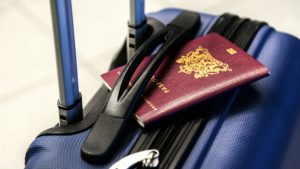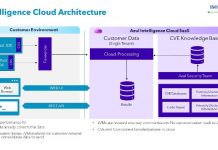
NordLEI is the eighth-largest global issuer of LEIs and the leading issuer in Scandinavia. It has issued over 165,000 LEIs since 2014. By launching Nord vLEI, it is now delivering a digital version of the LEI that organisations are increasingly requiring.

Anders Åström, CEO and Co-founder of NordLEI, comments: “Nord vLEI is proud to lead the way as the first QVI based in Europe. The strength of the global economy lies in its transparency and trust. The vLEI enables functional, reliable, and ethical interactions on a scale never seen before and significantly reduces the potential for fraud and inefficiencies. As a QVI we will deliver the same quality as we have come to be known for with NordLEI.”
What is GLEIF and the vLEI?
The Global Legal Entity Identity Foundation (GLEIF) was created by the Financial Stability Board (FSB) in 2014. Its goal is to provide a mechanism that can be used as a legal entity identity. It is a 20-character, alpha-numeric code based on the ISO 17442 standard.
While the LEI has been successful, GLEIF discovered that there was a demand for a digital version of the LEI. To meet that demand, the vLEI was created. Importantly, the vLEI is expected to appeal to a much wider range of industries as organisations look for a solution to the problems of digital certificates.
The key challenge for GLEIF was to ensure that the LEI was verifiable. To do that, it uses the Trust over IP Authentic Chained Data Container (ACDC) specification. This enables it to prove a trust chain with GLEIF as the root. Qualified vLEI Issuers (QVI) then credentials to organisations and persons who represent those organisations.
Those individuals get specific sets of credentials dependent upon their role. That role limit confers the actions that an individual can take. The chain of trust ensures that they cannot exceed their roles, and any actions they take are verified all the way back to GLEIF.
Using the KERI protocol, GLEIF can connect to any blockchain or distributed ledger technology. It ensures that GLEIF can support any self-sovereign identity system.
Enterprise Times: What does this mean?
There has been an increase in business fraud, including cyber fraud such as Business Email Compromise. Having a mechanism to verify the identity of individuals acting on behalf of organisations is no longer optional.
GLEIF has been doing this for some time. By launching the vLEI, it set out to widen the number of certificates issued and appeal to new markets. By appointing Nord vLEI as the first European issuer of vLEIs makes sense. The company is owned by NordLEI, which is a long-trusted partner of GLEIF. Therefore, certifying it to issue vLEIs is a sensible strategy.
It will be interesting to see how many vLEIs, Nord vLEI issues over the next year. How quickly will it see uptake in certificates? Also, how many of these certificates will be against individuals rather than just companies? A third question is how it can widen its appeal to new industries.?


























